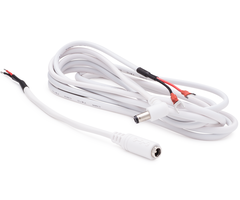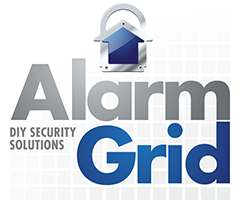Alarm Wire


Alarm wire is exactly what it sounds like. It is the wire or cabling that you use to make various connections throughout your alarm system. Although wireless alarm security systems and panels are quickly becoming the new norm, there are still many applications in which hardwired equipment is used. Some people may choose to use hardwired systems because they require less maintenance and they integrate completely with a building. For these situations, the installer will certainly need alarm wire.
There are many cases where you might need to break out your alarm wire when you are setting up a new system or new equipment. If you want to add a hardwired sensor, you will need to run a wire from the panel to the sensor. If you are adding a wired siren, then a wire will be needed to connect the bell output for the panel to the sounder. You will also most likely need to connect the siren to an external power supply and a backup battery. Again, this will require alarm system wire. And don't forget that you will need wire to connect the panel to its transformer! All of this is good reason to ensure that you have alarm wire on deck at all times. It's essential for DIY users and professional installers alike!
But not all wire is created equal. For the best results, you will want to make sure that you are using the correct type. Although the wire we sell can often be used interchangeably, you may as well get the perfect wire for any given job if you have the option. We recommend the use of stranded wire, which is less likely than solid core wire to become damaged when it is cut, stripped or spliced. If you're a DIY user and you aren't highly trained in cutting or splicing wire, then you will want to use stranded cabling to make sure you get through the job without incident. When you go to strip or cut your stranded wire, you know that you will have an easy time completing the task.
Wire can also vary in thickness, which is referred to as the gauge or AWG. The higher the gauge number or value, the thinner the wire. In other words, the thickest wire is the lowest gauge. The advantage to using a lower gauge and thicker wire is that you can complete longer wire runs without having to worry about loss of current. But thinner wires can be easier to work with than thicker wires. You may have trouble making connections if you use too thick of wire. We find that 18-gauge wire is the ideal wire thickness for most alarm system applications. However, some users may want to go with the slightly thinner 22-gauge wire, which can be a little bit easier to work with for making connections.
You should also consider the conductor listing for the cabling. This refers to how many smaller internal wires are housed inside the larger cable. If a wire is 2-conductor, then it has two internal wires. If it is 4-conductor, then it has four internal wires. Most alarm system wiring applications will use two-wire connections. But there are some applications that require four-wire connections. A common example is hardwired motion detection sensors, which typically use two wires for power and two wires for data.



